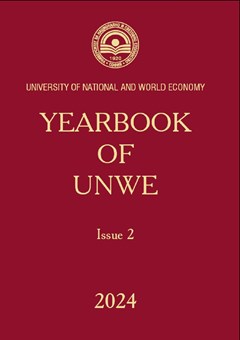Development of Soft Competencies Through Self-Assessment: A Model for Professional Realization of Students
Author: Nikola Tanakov
Abstract
In the context of the transforming requirements for the modern professional environment and the developing paradigms of higher education, the development of soft competencies acquires the status of a critical factor for successful professional realization. The present study aims to construct and validate a self-assessment model aimed at identifying and improving key skills such as communication, adaptability, time management and problem solving. Self-assessment is conceptualized as a tool for purposeful critical reflection that supports the building of competencies relevant to the successful integration of young professionals in the competitive work environment.
The methodological framework covers a multidimensional approach based on anonymous questionnaire surveys with 53 employers and 200 students of UNSS conducted in 2024, as well as additional qualitative methods including focus groups and in-depth interviews with teachers and employers. The analyst shows that the systematic use of self-assessment tools leads to a significant improvement in soft competencies, strengthens students' confidence in the professional environment and facilitates the synthesis of theoretical knowledge with practical skills.
The results highlight self-esteem as a strategic mechanism for improving the personal and social competencies necessary for successful career realization. The inclusion of adapted self-assessment models in academic programs can play a fundamental role in the preparation of highly qualified professionals capable of responding to the complexity and dynamics of the global labor market.
JEL: J01, L22, M12, M53, N30

